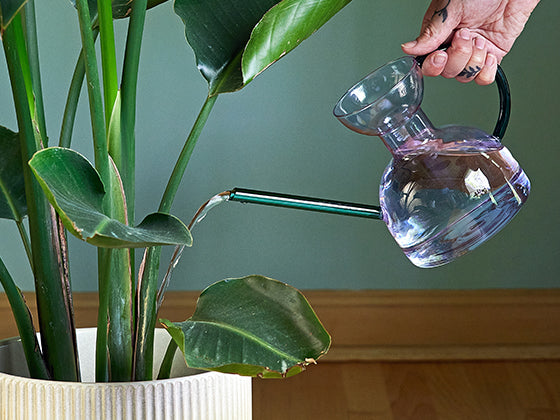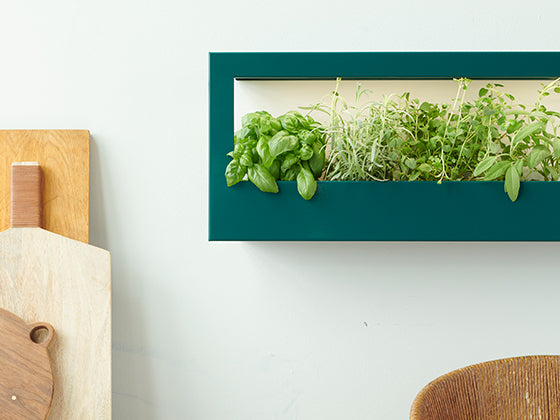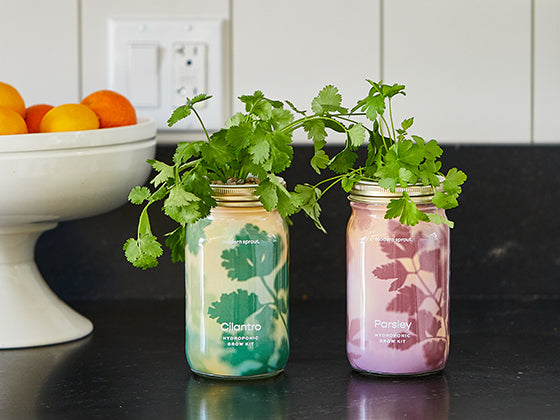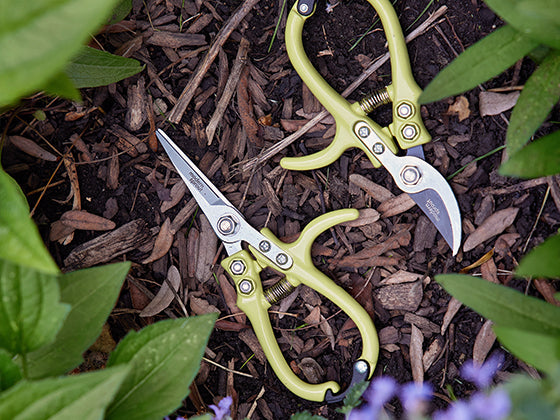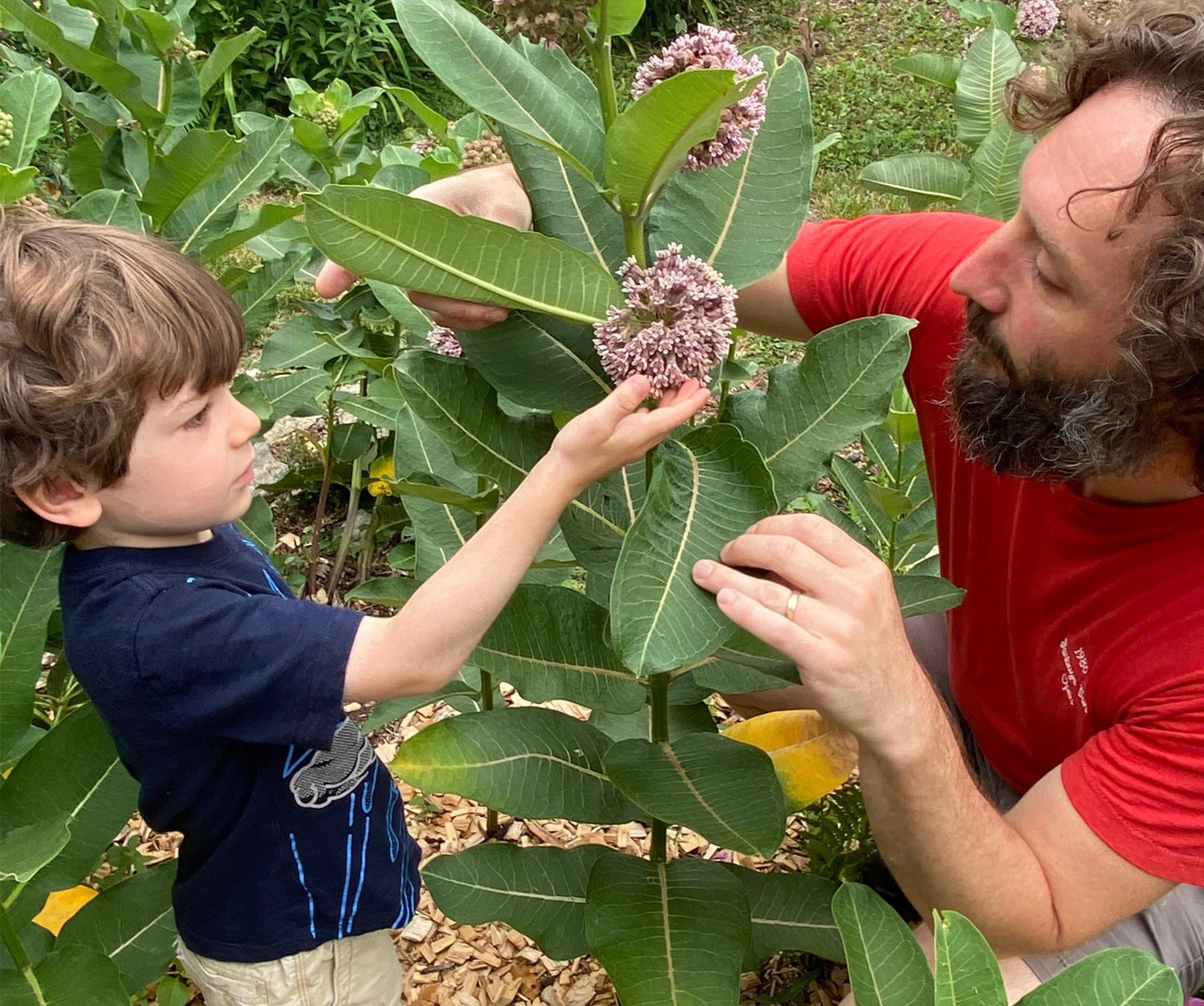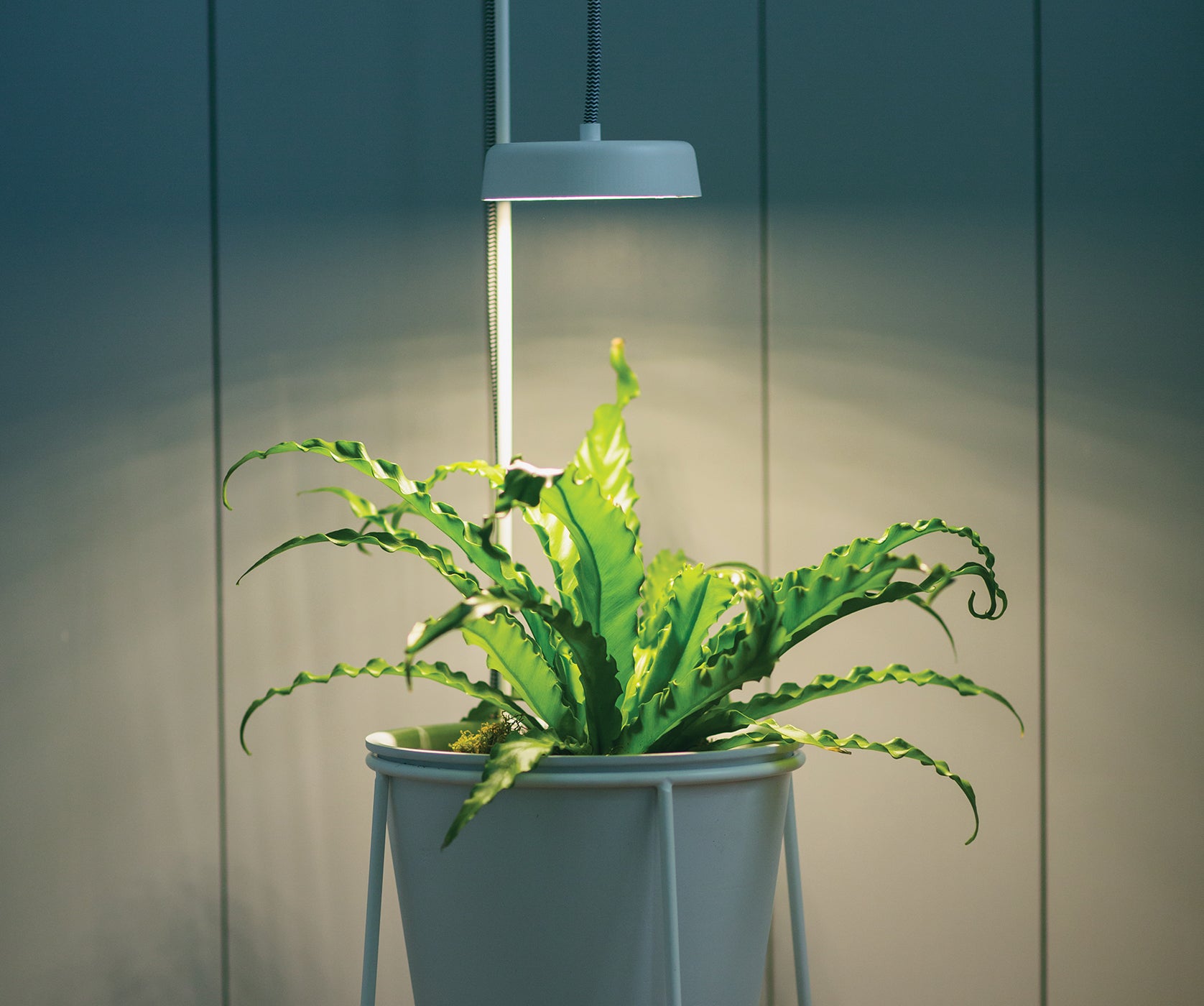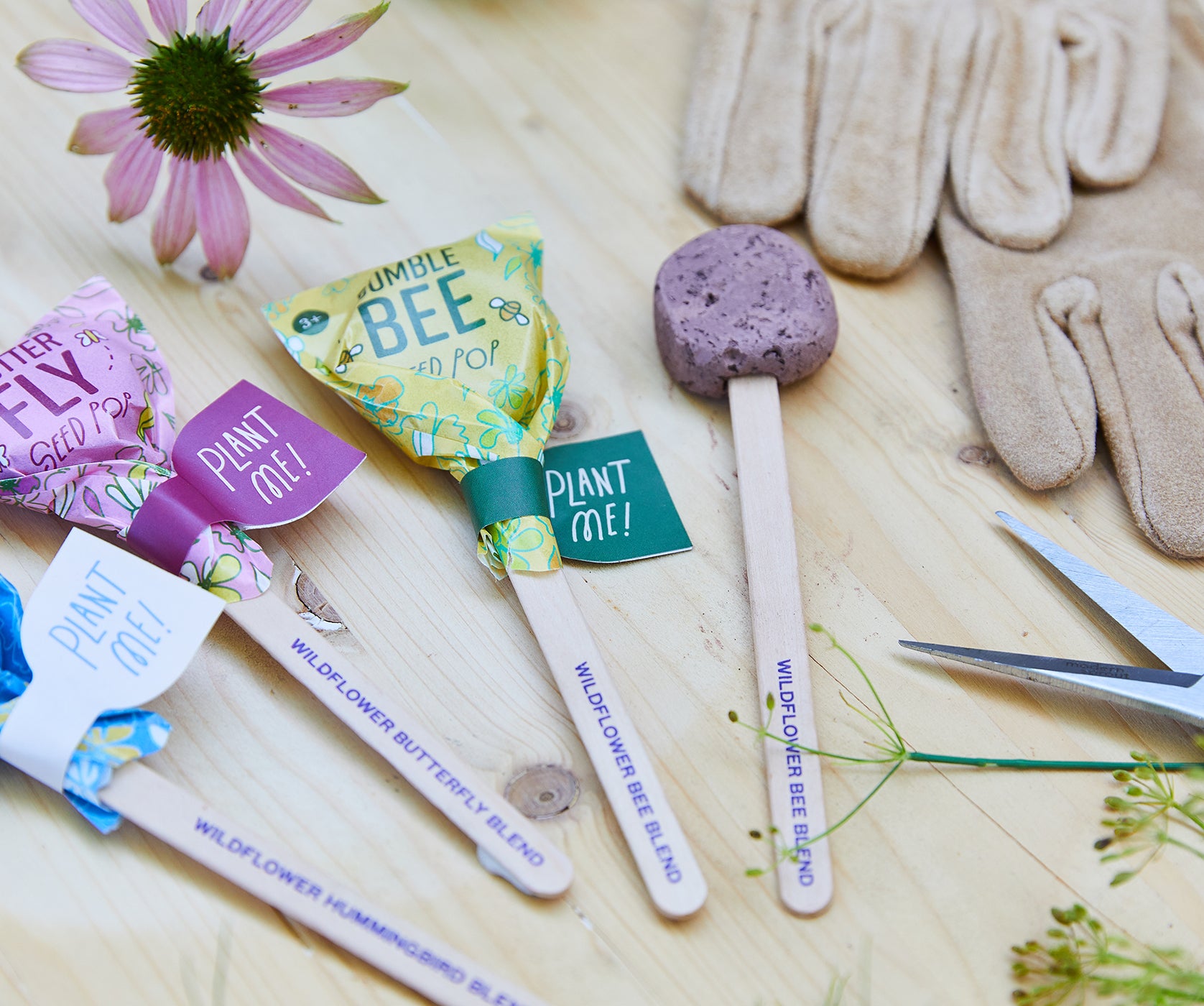We first learn about bees and their pollinating counterparts as children sitting in science class. As we grow up and the classroom expands to the greater world around us, there’s a moment in which we find a new appreciation for these everyday heroes.
 Pollinators play an integral role in our food supply. Did you know that 1/3 of the food we consume is dependent on the pollination process? This includes apples, almonds, blueberries, cherries…and nearly 1200 additional crops! However, these vital creatures are struggling to survive due to modern monoculture farming practices and the increased use of pesticides. A monoculture is the farming practice in which growers in one locality grow the same crop for miles and miles, entire regions really. This, in turn, means our pollinators are restricted in the variety of sheer biomatter in which to spread and sustain themselves and their local ecosystems. They simply can’t get from point A to point B, without the plants in between to sustain them.
Pollinators play an integral role in our food supply. Did you know that 1/3 of the food we consume is dependent on the pollination process? This includes apples, almonds, blueberries, cherries…and nearly 1200 additional crops! However, these vital creatures are struggling to survive due to modern monoculture farming practices and the increased use of pesticides. A monoculture is the farming practice in which growers in one locality grow the same crop for miles and miles, entire regions really. This, in turn, means our pollinators are restricted in the variety of sheer biomatter in which to spread and sustain themselves and their local ecosystems. They simply can’t get from point A to point B, without the plants in between to sustain them.
 When people think of pollinators they typically think of bees and butterflies, but the list of creatures that aid in this critical process is vast. While insects tend to get a bad rap, the reality is we need as many of them as possible in our neighborhoods. Over 80% of the world's flowering plants are dependent on them.
When people think of pollinators they typically think of bees and butterflies, but the list of creatures that aid in this critical process is vast. While insects tend to get a bad rap, the reality is we need as many of them as possible in our neighborhoods. Over 80% of the world's flowering plants are dependent on them.
 Pollinators and biodiversity are essential to the health and well-being of the planet and all the species that inhabit it. Loss of biodiversity can lead to ecosystem collapse, which has a far-reaching ripple effect that we can’t even fully quantify. We know the future will include reduced food security, increased contact with disease, and an unquantifiable economic cost of having to manufacture the systems of nature’s intelligence; from irrigation and carbon sequestering to soil reclamation without pollinators, we will have to build complex systems to take the place of the natural processes that we have rendered impossible.
Pollinators and biodiversity are essential to the health and well-being of the planet and all the species that inhabit it. Loss of biodiversity can lead to ecosystem collapse, which has a far-reaching ripple effect that we can’t even fully quantify. We know the future will include reduced food security, increased contact with disease, and an unquantifiable economic cost of having to manufacture the systems of nature’s intelligence; from irrigation and carbon sequestering to soil reclamation without pollinators, we will have to build complex systems to take the place of the natural processes that we have rendered impossible.
 The relationship between the planet and the life that inhabits it is intertwined in ways we have yet to even understand. But we know that biodiversity plays a direct role in climate regulation, purification of air and water, and the provision of food, medicine and other resources that are essential for humans to thrive. Unfortunately, biodiversity is succumbing to the worst environmental trifecta battle waged by the effects of climate change, habitat losses, and the widespread use of pesticides.
The relationship between the planet and the life that inhabits it is intertwined in ways we have yet to even understand. But we know that biodiversity plays a direct role in climate regulation, purification of air and water, and the provision of food, medicine and other resources that are essential for humans to thrive. Unfortunately, biodiversity is succumbing to the worst environmental trifecta battle waged by the effects of climate change, habitat losses, and the widespread use of pesticides.
We don’t have to be an invasive species as human beings. We need to start to live in better balance with the natural world. We need to act collectively to put our ecosystems back together. It’s our responsibility to make the hard choices, to forgo what may be convenient in order to do what is right.
 Big challenges can can be met with collective small acts in our communities or even our backyards. In planting a native wildflower garden — whether by scattering a handful of seeds or tending to a small plot or patio planter — you can help heal the earth. In Modern Sprout’s 10th year and in the years to come, we plan to do just that.
Big challenges can can be met with collective small acts in our communities or even our backyards. In planting a native wildflower garden — whether by scattering a handful of seeds or tending to a small plot or patio planter — you can help heal the earth. In Modern Sprout’s 10th year and in the years to come, we plan to do just that.
Warmly,
Sarah Burrows
Co-Founder Modern Sprout

